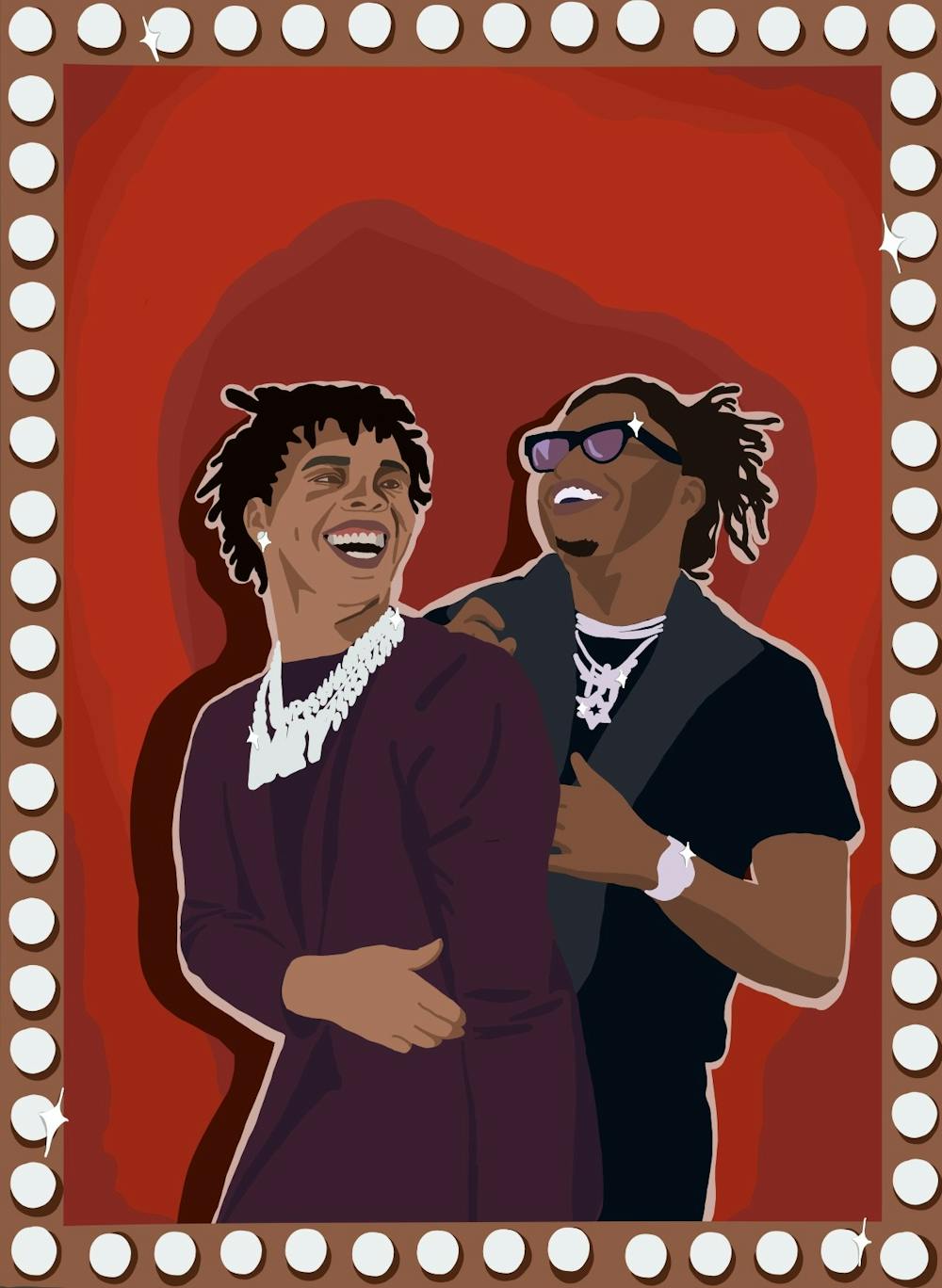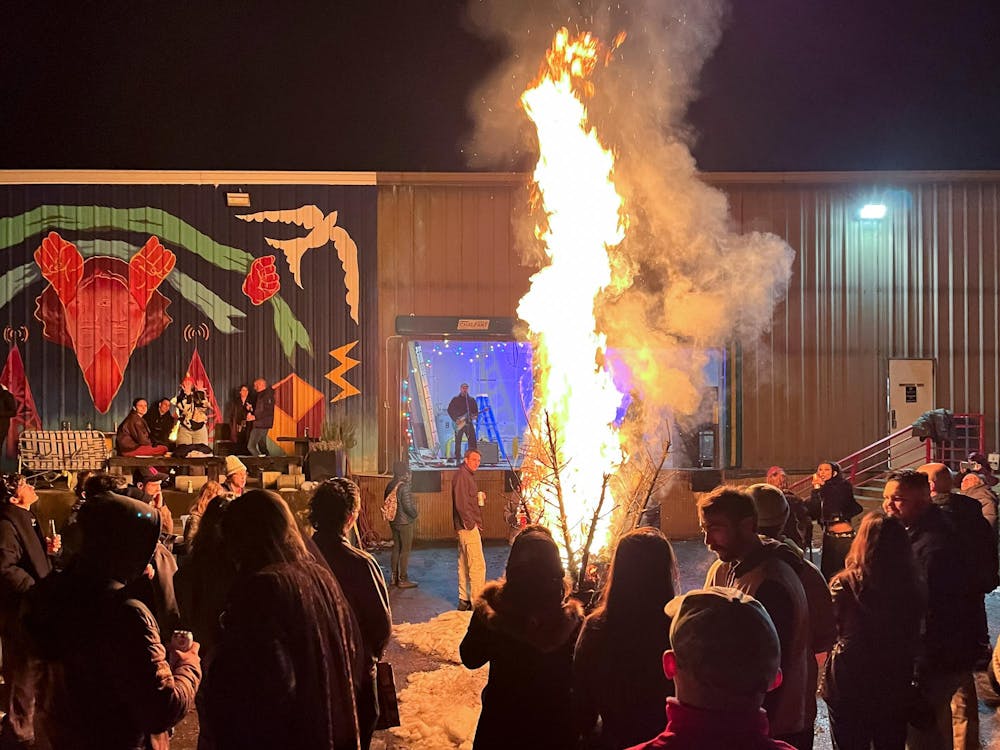Ice T is old. No disrespect intended, but there’s a reason why “old head” is commonplace terminology in pop culture discourse — and specifically in hip-hop discourse. After Soulja Boy’s “Crank That” blew up in 2007, some self-proclaimed “hip-hop purists” had something to say. Specifically, Ice T claimed Soulja Boy had “single-handedly killed hip-hop.” That’s a pretty audacious claim — no one man could have all that power. Soulja Boy responded in a now-infamous video, making a claim that reigns true to this day — “the reality of it is, the game has changed.” And that’s the truth — 13 years ago, the game had changed, and it will always continue to do so. Here, in 2020, some people assert that rap — in its modern form — is a dying art. I disagree. Exhibit A — “Sold Out Dates” by Gunna and Lil Baby, the greatest song of our generation, and of all time.
I am young. I will be young for a little while longer, and the wealth of music I listen to now will someday make me yearn for the good old days. Simply put — I am in the process of collecting nostalgia, and rap will certainly play a part in my mental time capsules. I, for one, love Soulja Boy, and everything rap has become in his post-world-wide-web wake — “Crank That” hangs in the foyer of my mind. Any students of post-Soulja — fine-art philosophers such as Gucci Mane, Future or any other Atlanta-based linguistic liaisons — get my co-sign. But the artists in question today, Gunna and Lil Baby, are two disciples of Young Thug — the godfather of slime.
Gunna and Lil Baby mark significantly different genetic phenotypes — and therefore, delineations — from the Young-Thug root of their phylogenetic tree. Gunna’s silky, tip-toeing flows cultivate a magic-Maison-Margiela carpet ride over whichever beat he chooses to glide through. Lil Baby’s muzzled, crocodilian-croak — at times neck-busting, at times shoulder-strutting — bursts through beat pockets with the strength and unpredictability of a cannonball. Together, they form a formidable duo with the cool, collected poise of OutKast and the captivating magnetism of, say, Kris Kross. The duo combined in late 2018 for the smash hit mixtape “Drip Harder,” with the lead single “Drip Too Hard” mass-exporting their names into international conversations. However, the duo released a standalone single before the hype really drenched listeners’ psyches. In April 2018, Gunna and Lil Baby dropped “Sold Out Dates,” a further fracture in hip-hop conservatism.
“Sold Out Dates” feels as sleepy and relaxed as it does sprightly and tenacious. While these energies are antithetical in nature, they become a celestial enchantment in imagination and execution — like flying a spaceship through water or riding a submarine through the sky. The beat, produced by Turbo and Ghetto Guitar, forges a perfectly bouncy, buoyant soundscape for the duo to brandish their melodic, snake-charm flows. Each subterranean 808, each inebriating guitar loop and each waltzing hi-hat feeds into the auditory narrative of the new ATLiens in a wild-west-style smack-off at the Hartsfield-Jackson International Space Station — facing up against an unnamed enemy. Maybe some critics. Someone call Hype Williams for me.
One of the key complaints surrounding the new age of rap is the lyrical content. Nostalgic hip-hop crusaders of yesteryear claim that the new generation doesn’t care about lyrics and that all the lyrics mumble about is drugs, sex and money. First of all, when hasn’t popular music wailed about sex, drugs and money? Secondly, when art evolves, it takes different forms, and if it doesn’t take different forms, it’s not evolving. Stagnation is not rupture, and rupture defines revolution. Do lines like “my jacket Off-White / don't mean that it's beige,” or “I got on two watches / I still come in late,” signify a change for the better? I believe they do. They might not be the most complicated, head-throbbing lyrics, but complexity doesn’t always equate to quality — they used to tell Monet that his paintings were “too simple.” Sometimes you don’t have to intellectualize how art makes you feel — you just have to feel it.
“Sold Out Dates” doesn’t reinvent the wheel, nor does it intend to. Everyone in hip-hop history has taken a small piece of the wheel and carefully modified it, adding their own flavors and leaving their legacies. Public Enemy made it bumpy, Three 6 Mafia made it rattle, André 3000 made it crinkle and contort. If anything, Gunna and Lil Baby have smoothed the wheel down to help it glide and maybe tacked a real 4PF chain to the axle. And as the universal truth of crawling time endures, someone will be next. Whoever it is, they’ll etch their mark, whether we like it or not.
Hip-hop’s shift towards melody, flow and head-bob ability should be celebrated, not persecuted. We don’t need to make rap great again. The game has changed, and it will continue to change. While we should be weary of industry gimmicks — see artists like 6ix9ine and Lil Xan, for example — we shouldn’t let their splotch contort the perception of the new generation of hip-hop as monolithic. Until the day I inevitably become out of touch, I’ll celebrate the breakthroughs and thank the wheel for wherever it takes me. And until that fateful day where my synapses are unable to handle change, I’ll just try to remember the days we used to glide and keep my mouth shut.
Keep up with all of Stefan's best songs of all time with our official Tied for First playlist.







